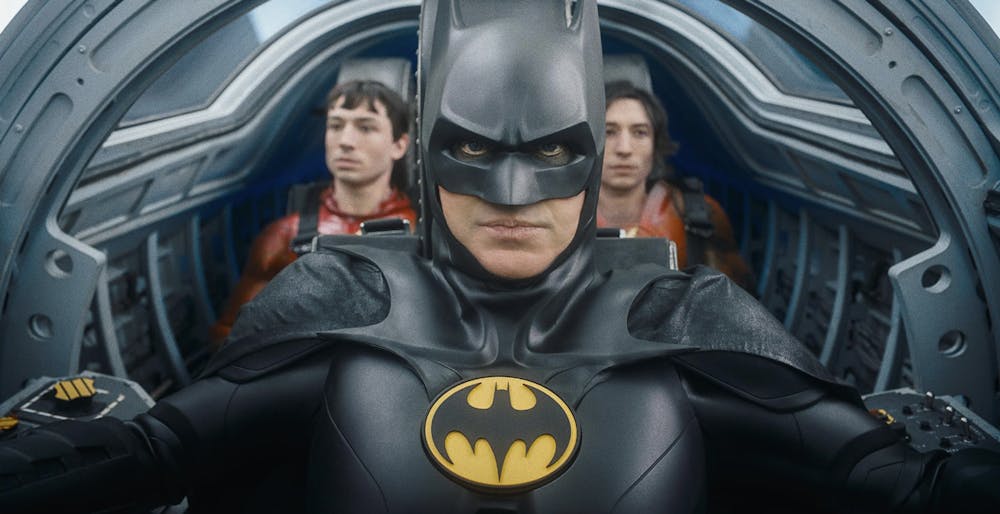By Jack Salaki
Correspondent
When you look at the type of superhero movies released in the past few years, you’ll notice a pattern: an over-reliance on multiverse storytelling. “Spider-Man: No Way Home,” one of the most popular movies of 2021, kick-started this trend.
A multiverse generally worked for the context of that movie. The film brought back Andrew Garfield and Tobey Maguire, two previous Spider-Man actors, in addition to several old villains. Fans appreciated this. The movie garnered a 93% critics' score and a 97% audience rating.
However, the market for multiversal stories quickly became oversaturated. Most likely due to the COVID-19 pandemic, which disrupted major film studios, executives planned reactively rather than proactively.
In 2022, Marvel released “Doctor Strange in the Multiverse of Madness,” a more controversial movie with a 73% critics’ score. The multiversal trend did not end there. “Ant-Man and the Wasp: Quantumania” features elements of the multiverse, as does “Deadpool & Wolverine.”
Marvel’s counterpart, DC, also tested out the multiversal waters with its 2023 “The Flash,” bringing back Michael Keaton, the original 1989 Batman actor.
Recently, superhero films have seen a noticeable dip at the box office. Most notably, James Gunn’s “Superman” only grossed $614 million overall, despite some pundits predicting a $1 billion performance. Superman is one of the most popular comic book characters ever, and yet the movie still struggled to garner excitement.
If you go back a few years, characters that were far less popular had films that performed better than this. In 2018, “Black Panther” made $1.3 billion, in part due to up-and-coming Director Ryan Coogler’s talents. A year later, Captain Marvel, a C-list comic book character, grossed $1.1 billion. In essence, superhero movies are not creating the same excitement for fans that they used to.
And sure, it’s fair to say that genres rise and fall. However, I think that what is really going on is a lack of intentional storytelling. The reason why characters like Captain Marvel and Black Panther had such popular films was because of the intentional storytelling leading up to “Avengers: Infinity War” and “Avengers: Endgame.” People were genuinely excited to see these stories unfold.
That hasn’t been the case as of late.
The big issue here is that the multiverse introduced the idea of zero-consequence storytelling. Characters are no longer permanently killed off. Now, studios can bring back any character they want, whether or not it fits within the context of the story.
I’m not necessarily a hater of the concept of a multiverse — films like “Everything Everywhere All at Once” have shown that it can be done well — but you can’t expect it to work in interconnected universes, where bringing back old faces can create massive box office returns. Studios are going to go for the profit over the story every time.
I won’t even lie, I’m excited for the upcoming “Avengers: Doomsday” movie, which features Robert Downey Jr. as Dr. Doom and a variety of old X-Men actors and characters from the multiverse.
It still doesn’t change the fact that the multiverse is being utilized carelessly. The first 10 years of the Marvel Cinematic Universe worked so well because they were innovative and required directors to work hard to create a connection between the audience and the characters. It wasn’t just about seeing someone from an old superhero movie that you loved as a kid. When you do that, you’re relying on someone else to do the work for you.
That may be a big reason why fans have lost interest in superhero stories, even big ones like “Superman.” They aren’t telling us anything new about these characters; they are just throwing them up on screen to get us to come to the theater. The box office is on the decline because there are no longer real consequences. Plus, instead of real human stories, we're getting ones that feel cheap and reliant on nostalgia.
My hope for the future of the superhero genre is that it reverts to character-first storytelling. Instead of trying to create the biggest spectacle possible, let’s understand who these characters are as people.
I want to empathize with these characters, not just cheer for them because they’ve returned after a 10-year hiatus. Luckily, certain studios are realizing the pitfalls of the multiverse. DC has allowed director Matt Reeves his own “Elseworlds” universe, separate even from James Gunn’s DC Universe. This universe is grounded, character-driven, and human, and focuses on Batman and Gotham, not the entire universe.
Marvel seems to be headed for a “soft reboot” following “Avengers: Secret Wars.” I don’t want to get overly optimistic, but perhaps this could mean that Marvel reverts to what made it into what it was: character-first stories.
Ultimately, studios only care about one thing: money. That’s what started the multiverse in the first place. It wasn’t from a place of trying to tell creative and innovative stories. So when the box office continues to decline, it’s a clear sign for them: things need to change.







